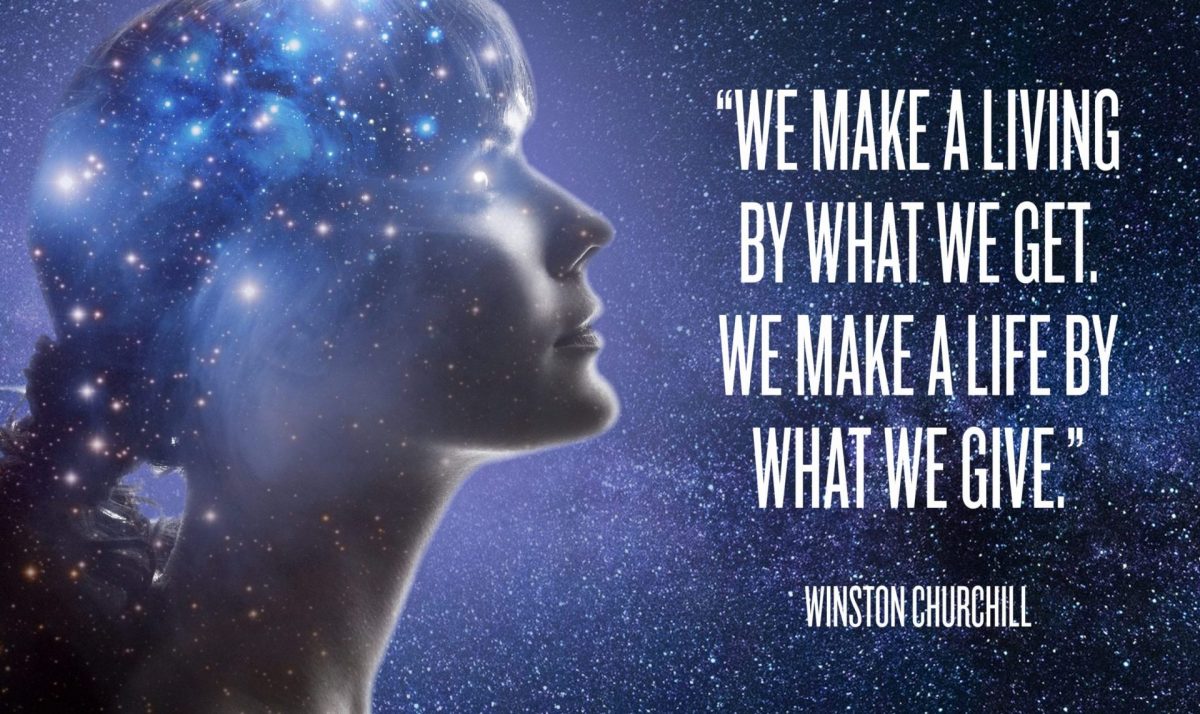
“Why me? Why now? How does this benefit me?”
We’re sure a lot of questions run through your mind when you’re making the decision to give to a charitable organization. Fortunately, the answers to“why give”are easily found in our most basic biological and psychological selves.
But before we ask why donate to an organization, let’s ask ourselves “why give anything?”
Why do I give my love, time, or effort to things I care about?
The answer to giving seems simple when we reframe the question this way. We give not only because it helps others, but because we care.
Though we usually don’t ask for things in return for our care, we do reap our own rewards from expressing it. For instance, in families, the phenomenon of care through bonding is felt often between parents and children, and benefits both. We have all experienced the ways that being on the giving side of caring relationships improve our mood and daily lives. These relationships also affirm our value to others, whether in family units or larger communities. In short, by extending ourselves through giving to others, we allow ourselves to grow and experience our own deeper sense of self (1).
Of course, there are plenty of ways to care for others and extend a helping hand outside of family: We help friends or communities by offering service, time, and empathy. Giving to charity is also a simple way to reach out to others, especially if you’re passionate about a specific cause or organization’s mission. Though giving money sometimes seems like a less personal way to support a cause, charitable giving actually stimulates the brain in ways that mimic the neurological benefits of caring for family.
Donations and the Brain
The act of receiving a gift or monetary reward activates the mesolimbic reward pathway in the human brain, the system that incentivizes behavior. What’s more surprising, donating money to charity activates the mesolimbic system more effectively than receiving money. What’s more, in addition to the simple reward pathway activated when receiving money, donating money ignites the subgenual area of the brain, which is involved in social attachment (2). Donating money, as well as activating feelings of reward and social connection, was discovered to elicit senses of euphoria and inner peace created by the release of chemicals that influence happiness including dopamine, endorphins, and oxytocin (3).
So what does all of this mean?
Giving is a two-way street when the benefits are considered, and clearly makes a lot of logical (and neurological!) sense. Ultimately, giving connects you to your community on deeper social and emotional levels. By donating to a cause, you not only support a philanthropic organization and a mission you are passionate about, but you invest in your own feelings of self-worth and happiness.
When you give to an organization, you’re also becoming part of the community that gathers together to accomplish something big—in our case, the ambitious goal of shaping the next generation of compassionate, thoughtful leaders. Donors are as much a part of our family as the parents who entrust their students to us every day.
We hope you consider all of the reasons to give to Baltimore Chesapeake Bay Outward Bound School this year. We’re incredibly grateful for your support and your shared passion, values, and hopes for our community.
DONATE TODAY
Give Back: Make a Donation to Baltimore Chesapeake Bay Outward Bound School.
SOURCES
- https://www.forbes.com/sites/brettsteenbarger/2017/12/25/the-psychology-of-giving/#32eb1bd764f5
- https://blogs.scientificamerican.com/literally-psyched/the-psychology-behind-gift-giving-and-generosity/
- https://health.usnews.com/health-news/health-wellness/articles/2015/05/01/what-generosity-does-to-your-brain-and-life-expectancy